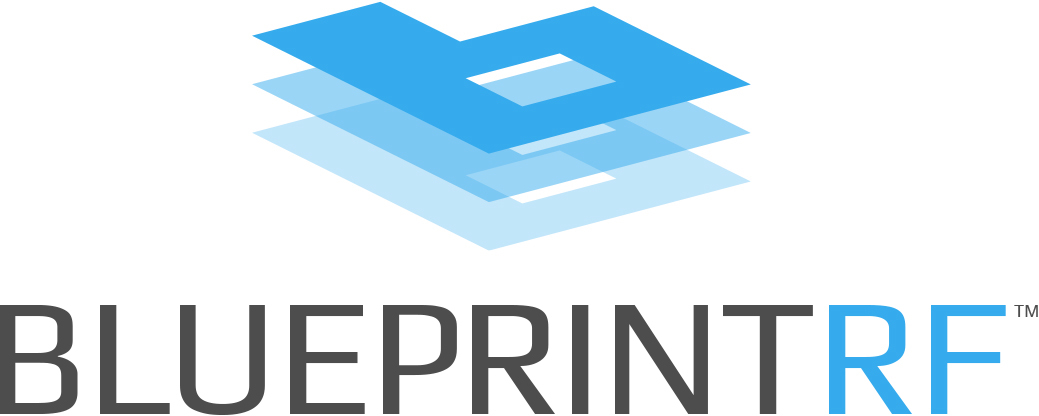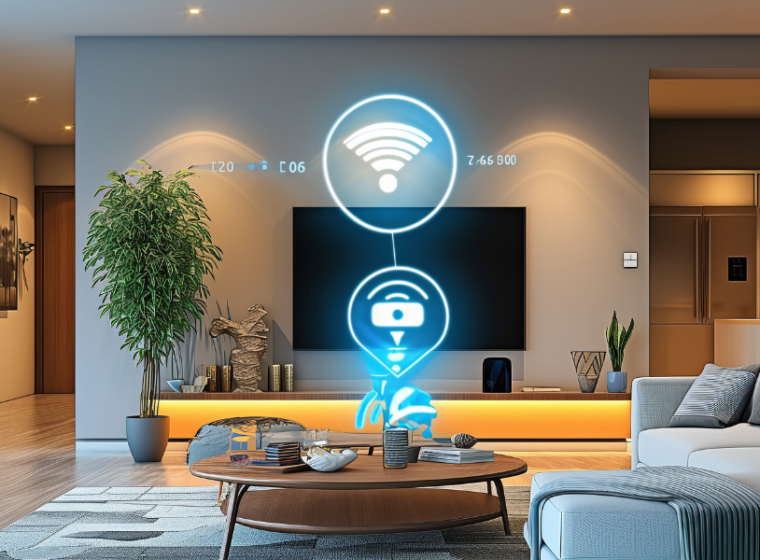Key Examples of Hotel Branding to Incorporate Within Your Strategy
Picture the world’s most memorable hotels. The Ritz-Carlton’s crown and lion. The sleek W Hotels’ edge. The unmistakable luxury of Four Seasons.
These hospitality icons have figured out a fundamental truth: exceptional branding transforms properties into destinations. Studies suggest effective hotel branding may contribute to revenue increases; hospitality businesses with strong brand identities generate up to 17% more revenue than their unbranded counterparts, according to a study by McKinsey & Company.
This financial advantage may stem from the emotional connections guests form with well-crafted hotel brands. Your brand can tell a story that resonates with guests before they ever step foot on your property.
TripAdvisor data showed that hotels with over 100 photos on their Trip Advisor profiles saw a 151% increase in traveler engagement and were 283% more likely to receive booking inquiries. But showing bland and unappealing hotel rooms, non-aesthetic food photos, and boring content presentation are the common deal breakers, according to Hospitalitynet.
Your brand’s strategy reflects that content and the image your hotel portrays. Let’s explore eight hotel branding ideas that can help elevate your property’s presence and create lasting impressions with your target audience.
- Develop a Marketing Strategy
- Conduct Competitor Research
- Develop a Unique Identity
- Tell Your Brand Story
- Establish a Brand Style Guide
- Leverage Social Media
- Measure Success Via KPIs
- Effectively Manage Brand Reputation
1. Develop a Marketing Strategy
Your marketing strategy can be the foundation for your brand’s identity and market position. Recent industry data revealed that 52% of hotel CEOs identified finding new sources of growth and revenue generation as their top priority over the next three years. So if you’re not adapting, you risk falling behind.
“[Guests] want the quick Instagramification of — What is this hotel? Should I stay there?” said Aaron Miller, Vice President of CRM and Digital at Highgate.
Your marketing strategy should be the foundation for your brand’s identity and market position. Rather than casting a wide net, successful hotel brands focus on creating meaningful connections with their target audience through strategic positioning and clear, consistent messaging across all channels. This focused approach allows you to command higher rates while building lasting relationships with guests who align with your brand values.
2. Conduct Competitor Research
Understanding your competition is no longer optional. Recent data from STR showed that hotels actively monitoring their competitive sets reported up to 17% higher RevPAR than properties that didn’t engage in regular competitor analysis.
A key question to ask is: Would a traveler consider this hotel as an alternative to yours when visiting a particular location? This simple yet powerful lens helps you identify true competitors beyond just geographic proximity. Your competitive analysis should examine everything from pricing strategies and amenities to guest experience and online reputation.
Your competitor research must go beyond surface-level comparison. Focus on analyzing your competitors:
- unique selling points
- pricing strategies
- guest feedback across all major platforms.
You can identify untapped opportunities in the market by understand
ing where your competitors excel and where they fall short. This strategic intelligence allows you to make informed decisions about your own offerings and position your brand to capture the guests your competitors might be missing.
3. Develop a Unique Identity
Creating a distinct brand identity in hospitality requires more than just a sleek logo or catchy tagline. Here are some innovative approaches that successful hotel brands have used to stand out:
- The Hoxton hotels embrace their neighborhoods’ artistic heritage through local art installations and cultural programming.
- Standard hotels challenge conventional luxury with bold, playful design elements and unexpected guest experiences.
- Ace Hotels revolutionized the industry by transforming their lobbies into community hubs where locals and travelers naturally mix.
Your unique identity should reflect authentic elements that guests can’t find anywhere else. Consider incorporating distinctive architectural features, creating signature scents that uplift your spaces, or developing proprietary guest experiences that become talking points.
The key is to identify what makes your property special and amplify these elements across every touchpoint – from your website to your in-room amenities. These details become the building blocks of a memorable brand that guests actively seek out.

4. Tell Your Brand Story
Every hotel has a story, but not every hotel knows how to tell it effectively. Travelers are more likely to choose accommodations that showcase authentic, local experiences and tell compelling stories about their properties. Your narrative needs to resonate across every guest touchpoint.
“Stories are how we learn best. We absorb numbers and facts and details, but we keep them all glued into our heads with stories,” says Chris Brogan, marketing consultant. When data is combined with storytelling, information retention increases from 5% to 67%, according to GO-Globe. This demonstrates why narrative-driven content is crucial for making lasting impressions on potential guests.
Think beyond the standard “luxury hotel in the heart of the city” narrative.
- Did your historic property once host famous artists?
- Was your boutique hotel transformed from an abandoned warehouse?
- Does your rooftop garden supply ingredients to your award-winning restaurant?
These unique elements become the threads of your brand story. Weave them into your visual content, property descriptions, and guest communications. Remember — the best brand stories don’t just tell people what makes you different; they show them why that difference matters to their experience.
5. Establish a Brand Style Guide
A complete brand style guide acts as your hotel’s sacred blueprint for consistent communication across all channels. Research showed that businesses with consistent branding saw up to a 23% increase in revenue, highlighting why detailed guidelines are crucial for success.
Some of the most essential components of your hotel’s style guide:
- Logo variations and proper usage guidelines with clear exclusion zones
- Primary and secondary color palettes with specific color codes (Pantone, CMYK, RGB, and Hex)
- Typography hierarchy for headings, subheadings, and body text
- Photography and imagery standards
- Brand voice and tone guidelines
- Design patterns and visual elements
Your style guide should function as more than just a design manual – it needs to capture your hotel’s personality and values. For example, if your property promotes sustainability, your guide might specify earth tones and natural textures in your visual elements. If you’re a luxury brand, your guide might detail sophisticated typography and premium photography requirements.
Remember to make your guide accessible to all team members and partners while keeping it flexible enough to evolve with your brand. The most effective hotel brand guidelines are those that balance consistency with adaptability, ensuring your brand remains fresh while maintaining its core identity.
Social media can be an indispensable tool for hotel brands to showcase their unique offerings and connect with potential guests. With over 4.89 billion active social media users worldwide, these platforms offer unprecedented opportunities to build brand awareness and drive direct bookings.
Below are inspiring success stories on how hotels are utilizing key platforms:
- Instagram: The Ritz-Carlton masterfully leverages this platform by creating an aspirational image through visually stunning posts and engaging storytelling. Their strategy of highlighting unique experiences and luxury amenities has earned them significant engagement and brand loyalty.
- TikTok: Hilton Hotels broke new ground with their innovative 10-minute video campaign, successfully engaging younger demographics through long-form storytelling – a bold move on a platform typically known for short content. Their approach demonstrates how hotels can adapt traditional content for modern platforms.
- Facebook: Still commanding the largest user base with 3.03 billion monthly active users, hotels like The Leela have established a strong brand voice through a mix of stunning imagery and engaging content that showcases their unparalleled luxury offerings.
- YouTube: As the second-largest social platform with 2.49 billion monthly active users, hotels can leverage video content effectively. Four Seasons stands out by using a mix of professional content and user-generated videos to showcase their properties and guest experiences.
- LinkedIn: Perfect for reaching business travelers and event planners, hotels can share industry insights and corporate updates. The Pod Hotels effectively uses this platform to connect with business professionals and promote their corporate offerings.
Remember, success on social media isn’t just about posting content – it’s about creating meaningful connections.
7. Measure Success Via KPIs
Your hotel’s success in branding and marketing efforts must be measured through specific, actionable KPIs that directly impact your bottom line. Below are some of the most vital marketing and brand KPIs worth tracking:
- Website conversion rate: Track the percentage of visitors who complete a booking, with the hotel industry benchmark of 2.2%
- Social media engagement: Monitor likes, shares, and comments to gauge brand resonance, as 68% of consumers follow their favorite brands on social platforms
- Customer acquisition cost (CAC): Calculate the total expenses associated with gaining each new guest through your marketing efforts
- Online reputation metrics: Track review scores and sentiment across platforms, as properties with strong online reputations command higher rates and see increased bookings
- Direct booking percentage: Measure the success of your brand in driving reservations through owned channels versus online travel agencies
Your KPIs should create a feedback loop that informs your marketing strategy adjustments. Focus on metrics that directly tie to revenue generation and guest satisfaction and allow you to optimize your brand’s performance across all channels while maintaining a clear view of your return on marketing investment.

8. Effectively Manage Brand Reputation
Your hotel’s reputation requires constant nurturing through strategic monitoring and engagement across all digital touchpoints. A comprehensive approach to reputation management can help build trust with potential guests while maintaining strong relationships with existing ones.
“The online reputation of each of our brands is a key success indicator for us. Online reviews not only give us insights into our daily operations, they also directly influence our revenue and profitability,” notes Luis del Olmo, Executive Vice President and Chief Marketing Officer of Sol Meliá. This insight perfectly captures why proactive reputation management isn’t just a best practice – it’s essential for survival.
Key best practices for effective reputation management include:
- Monitor and respond to all reviews within 24 hours, whether positive or negative
- Consolidate review management across platforms using centralized tools
- Create response templates while ensuring each reply remains personalized
- Implement a guest feedback system during stays to address issues before they become negative reviews
- Train staff on proper communication protocols for handling guest concerns
- Set up Google Alerts to track brand mentions across the internet
- Regularly audit your online presence across all platforms to ensure consistency
Proactive hotel reputation management extends beyond damage control – it’s about building and maintaining a positive online presence that accurately reflects your brand’s values and commitment to guest satisfaction. The most successful hotels view reputation management as an ongoing investment in their future growth and guest relationships.
Connectivity: The Cornerstone of Your Hotel Brand
Your hotel’s brand success is inextricably linked to the quality of your internet connectivity. WiFi is one of the top influencing factors in hotel booking decisions, with properties offering superior connectivity seeing significantly higher guest satisfaction scores and repeat bookings.
Blueprint RF’s managed network solutions can help deliver the comprehensive connectivity infrastructure modern hotels need, providing the foundation for your brand’s digital presence – from enabling seamless guest experiences to supporting operational systems that drive your reputation.
By partnering with Blueprint RF, you secure a strategic partner committed to helping elevate your hotel’s brand through connectivity solutions. Blueprint RF can help your property stand out by offering the seamless digital experience today’s travelers demand while enabling you to build lasting connections with your guests to help drive revenue growth.
Contact our team to learn more.











